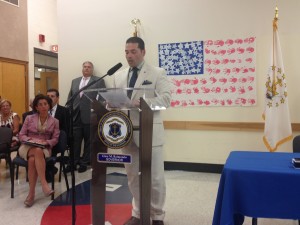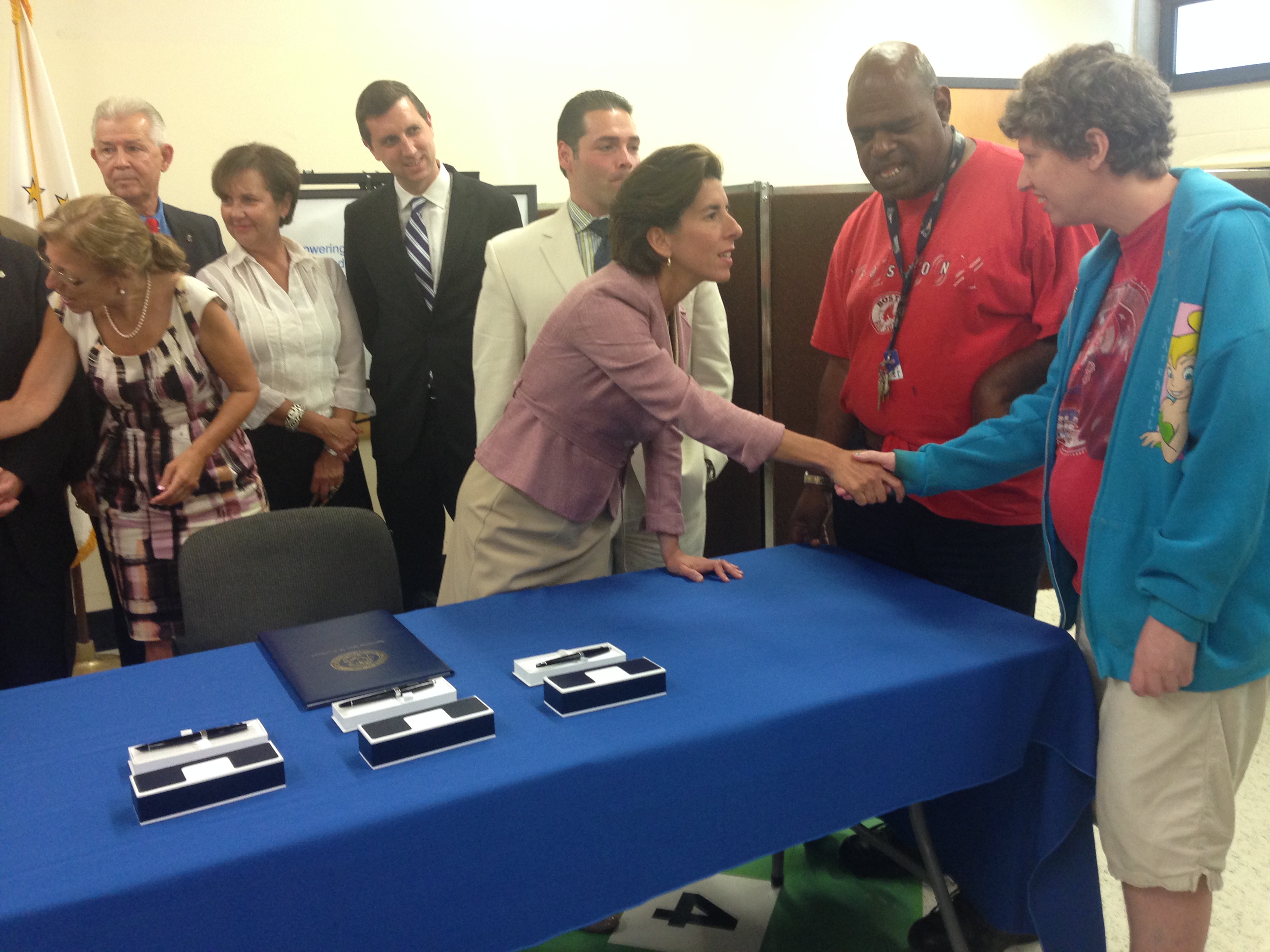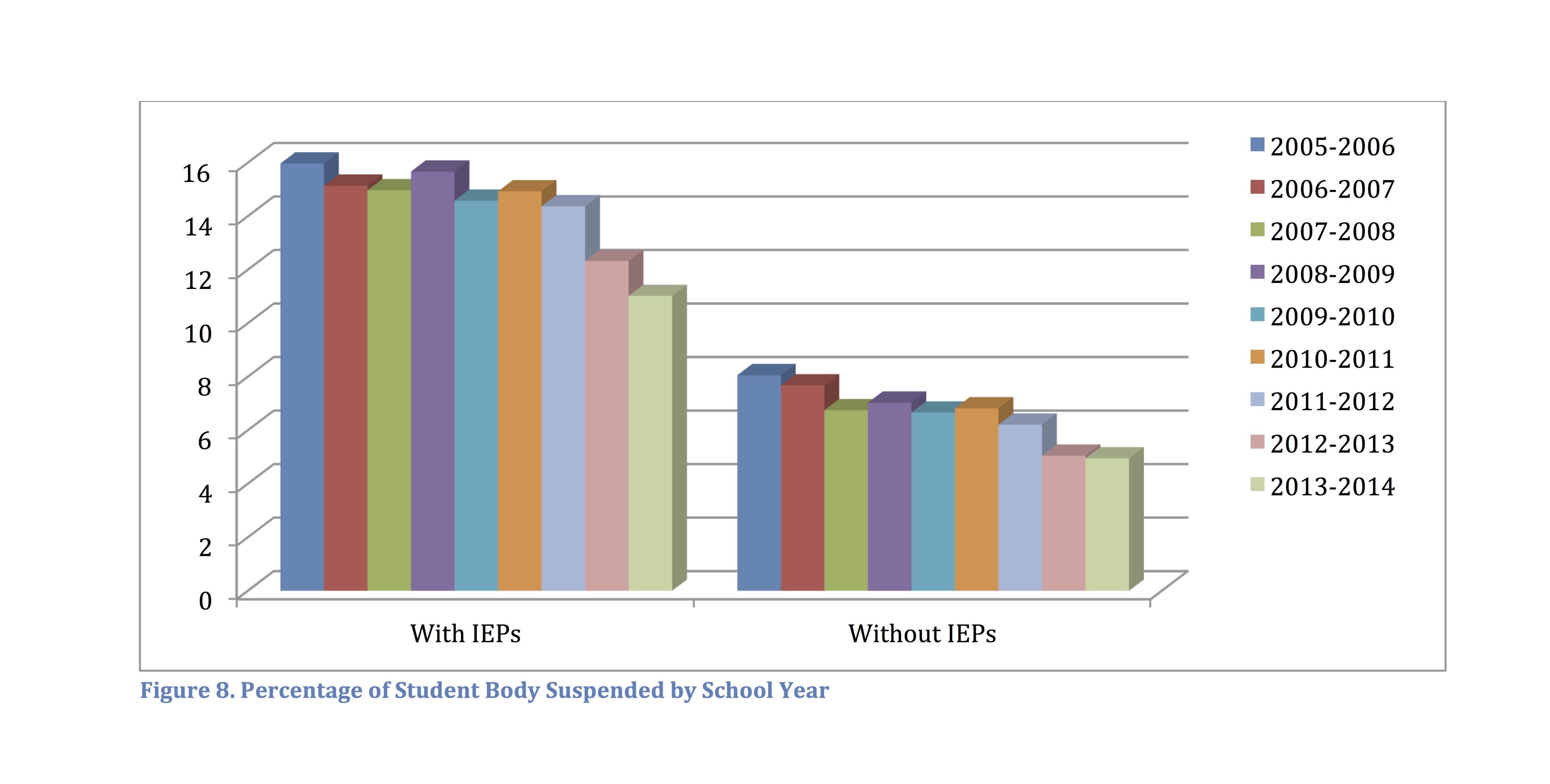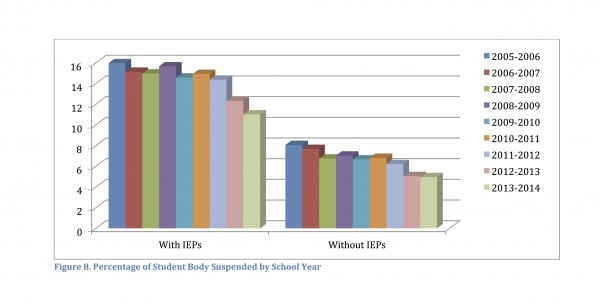Only a few days after the 25th anniversary of the Americans with Disabilities Act, Rhode Island instituted a new law that will allow families of children with disabilities to create a tax-free investment account to help financially support them when they reach adulthood. Governor Gina Raimondo signed the “Achieving a Better Life Experience,” or ABLE Act, into law on Wednesday afternoon at the Cornerstone School in Cranston.
Representative Robert Nardolillo, an Republican from District 28, and Senator Adam Satchell, a Democrat from District 9, sponsored the bipartisan act. Both legislators said that they decided to take on the bill because of their experiences with disabled children and their families. Satchell, who is a guidance teacher in the West Warwick, said that he works with disabled children all day, and has done so for years, even before he started teaching.

“I grew up next to a little boy who was disabled, and I learned a lot from him and from his family about the struggles that they go through,” he said. “I have friends who have a disabled child. So, working with the disabled has been something that I really wanted to do from the second I got elected.”
Satchell said that in West Warwick, schools are trying to bring the disabled population back in from outside placement. This move has given him the opportunity to work with both disabled and non-disabled students in the same room, in character education activities, teaching children how to respect and be kind to everyone.
“We have disabled individuals in the classroom, and its awesome to see the little kids helping their friend who can’t speak. They come up to me and say “Oh can I help this one, can I work with that one,” and it’s just awesome to see,” he said.
Having spoken with parents of these children, Satchell said that one of their biggest worries is what will happen when their children are not in school anymore. The ABLE program will hopefully quell that concern, and give parents the funds to send their children to adult daycare, or obtain job training.
While on his campaign trail, Nardolillo also spoke with parents of disabled children in his district, and decided to take on the act to help them.
“When I thought about what would be important to me to be important to me, to begin my session with, I concentrated on why I’m campaigning to be a legislator, and that’s public service,” he said. “You reflect on all the stories you heard going door to door. I’m a huge supporter of small business and trying to find jobs, but I’m a family man too.”
Nardolillo said that while speaking with these families, he realized that their children are their sole concern. When he began the session, he was looking for legislation that would have a positive and lasting impact on these families. While there is still more work to be done, and regulations that must be implemented, Nardolillo believes that this is a positive first step in the right direction.
The ABLE Act allows familes to put in $14,000 in state sanctioned accounts each year, with a $100,000 cap. This money is not taxed, and can be put towards a disabled child’s future, when they age out of the school system. Nardolillo added that these funds become even more important when a disabled individual wants to begin working.

“They want to work. They enjoy being out there, and socializing, and we all do,” he said. “We all love our jobs and like to socialize and everything, and this is a nice gateway. It opens the door to that, and that’s a special thing too.”
Both Satchell and Nardolillo also remarked that they anticipate no negative effects on the economy once the act is implemented, only positive ones.
“I can’t imagine what the negative impact of something like this would cause,” Nardolillo said. “Any time you offer someone opportunity, and you offer them a protection with an account like this, that allows them to put assets aside to protect their future, it’s hard for me to find a negative in that, it really is.”
“It wouldn’t have a negative effect on the economy, because a lot of these people basically have no assets to receive some of these services,” Satchell added. “If these people had any money, they weren’t using it, because if they have that money, and they have those assets, they run the risk of losing their programming.”
Before signing the act, Governor Raimondo gave her own remarks, saying that the ABLE accounts give Rhode Islanders the agency they deserve.
“This is about allowing people to have opportunity and independence, and fulfillment in their lives,” she said. “With these ABLE accounts, it will allow everybody to have some measure of independence, which is what people deserve.”
General Treasurer Seth Magaziner was also involved in the crafting of the bill, and said that he took a personal interest because his girlfriend’s brother was born with Down syndrome. Magaziner mentioned that he has seen the difficulties that their family has encountered trying to transition his girlfriend’s brother, named Peter, into adult life.
“Children who suffer from disabilities are just as deserving of a rich and fulfilling life than those children who are fortunate enough to pursue higher education,” he said. “Under this new law, our state will provide an affordable, tax-efficient savings plan to help families save for the costs of helping a child with disabilities make the transition into adulthood.”








